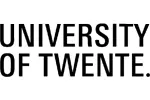We're moving! This site will be relocating to goingto.university in 2026. Please update your bookmarks to the new address.


| The award | How you will study | Study duration | Course start | Domestic course fees | International course fees |
|---|---|---|---|---|---|
| Summer School | Full-time | 9 days | August | - | - |
Insights and paradoxes
The objective of risk management is to identify those risks that can lead to business failure and to implement effective strategies to manage them. This holds for any business sector but perhaps more for finance, innovation, information technologies, infrastructure projects, and programs and policies. We will share with you fundamental concepts of risk management that enable you to understand their relevance not only to your own business undertakings but to our society.
We'll share fundamental concepts of risk management that enable you to understand their relevance not only to your own business undertakings but to our society.Ibsen Chivata Cardenas, course leaderRisk management is intricately related to other fields such as safety, security, decision making, governance, communication and this is naturally reflected in our courses' subjects. Furthermore, our portfolio of contents covers other inherent and contextual aspects of risk management, namely risk modeling, communication of risk, and disaster risk reduction.
Specific modules are devoted to address very varied business sectors such as water projects, collaborative construction projects, cyber-security, among others. In these, real cases applications will be shown.
Check the video from the previous course edition (2015):
Learning outcomes
Topics
This course will deal with different topics which are all related to the broad field of Risk management
Course leader
Ibsen Chivata Cardenas
Committed to provide relevant solutions by doing research on risk. Helping CEOs to develop knowledge and investigate opportunities to control risks. Relevant information is provided to top decision makers using cutting-edge information tools and techniques for risk analysis.
Research
The focus of Ibsen's research has been the investigation and analysis of risks to infrastructure, risks due to natural and man-made hazards, as well as to public organisations. He has been working on research dealing with uncertainty treatment and management of these risks
For more information: Ibsen Chivata Cardenas
Invited lecturer
EELCO H. DYKSTRA
Eelco H. Dykstra (1957) is the Executive Chair of Daily Impact Emergency Management (DIEM, www.diem.nu) and a widely recognized authority on all-hazard international emergency management/complex emergencies, covering both policy and practice. Other than currently directing the development of Daily Impact Emergency Management as an international think tank and social enterprise specializing in critical infrastructure, consequence management and local community resilience, he also serves as the 11th Brunel International Lecturer (2016-2018) of the Institution of Civil Engineers in London (www.ice.org.uk) and served a four-year term as a member on the Dutch National Advisory Council for the Environment and Infrastructure (www.rli.nl)
Factsheet: Course details
Suggested readings
Contact University of Twente to find course entry requirements.
Below are some suggested courses at other providers that you may also be interested in:
Professional Certificate of Competency in Carbon Capture Professional Certificate
Engineering Institute of Technology
Find out moreBachelor program “Operational Manager in International Hospitality” Bachelor Degree
Vatel Bordeaux
Find out moreConsider a Foundation or Pathway course at University of Twente to prepare for your chosen course:
If you do not meet the entry requirements for this course then consider one of these courses from another institution:
There are 85 other courses listed from University of Twente. A selection of these are displayed below:
Join the StudyLink email list and never miss a chance to turn your study abroad dreams into reality!

Find out more about studying in the Netherlands